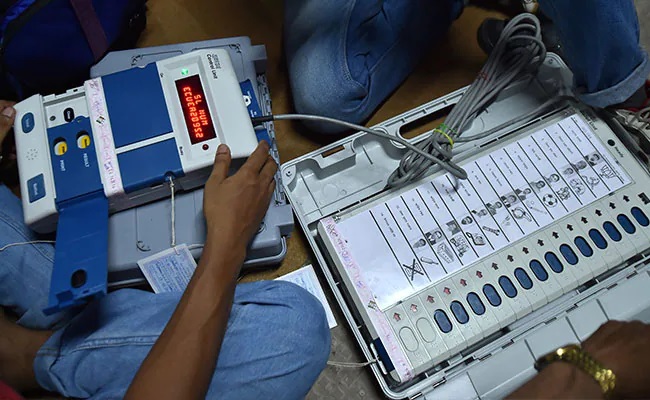
There is no scope for “ifs” and “buts” in politics. Once a decision is taken by a political party, it has to bear the outcome of such a decision – whether it good or bad - as it cannot be undone at a later stage.
There was a lot of criticism when Telugu Desam Party-Jana Sena combine roped the Bharatiya Janata Party into the alliance to fight against the YSR Congress party in the recent assembly and Lok Sabha elections in Andhra Pradesh on the pretext of splitting anti-establishment votes.
The reason is that the BJP doesn’t have any strength in Andhra Pradesh and it will not fetch any additional benefit to the TDP-Jana Sena alliance. On the other hand, the alliance might lose the votes of minorities and weaker sections. It would be the BJP which will gain from the alliance, not vice-versa.
Yet, Naidu was firm on forging an alliance with the BJP for strategic reasons, mainly to take the help of the Centre in preventing bulldozing of elections by the YSRCP government using its police forces and official machinery.
Otherwise, politically, it did not help the alliance much and the BJP, in fact, could win 8 assembly seats and three Lok Sabha seats with the help of the TDP and Jana Sena Party.
According to analysts, the TDP-Jana Sena Party combine would have won 24 out of 25 Lok Sabha seats, except Kadapa Lok Sabha seat which went to the YSRCP, if the BJP was not part of their alliance.
They point out that in three Lok Sabha constituencies – Rajampet, Tirupati and Araku (ST) seats, there was a heavy cross voting from the alliance to the YSRCP from the tribals and minorities, who would have otherwise voted for the TDP or Jana Sena.
According to reports, out of six MP seats contested by the BJP, there was a cross voting of 5,96,697 votes from the alliance to the YSRCP candidates, as indicated from the votes polled by the MLA candidates and the MP candidates.
For example, in Rajampet, BJP candidate N Kiran Kumar Reddy lost the elections by a margin of 76,061 votes. But the MLA candidates of the alliance partners under Rajampet LS constituency got 20,973 votes more than what Kiran had polled, which means there was a cross voting of 97,034 votes in favour of YSRCP candidate P Mithun Reddy.
In Araku parliamentary seat, BJP candidate Kothapalli Geetha lost by a margin of 50,580 votes. The MLA candidates of alliance partners under Araku LS seat got 32,862 votes more than her, indicating that there was a cross voting of 83,442 votes in favour of YSRCP candidate.
In Tirupati (SC) Lok Sabha constituency, BJP candidate V Vara Prasad lost by a margin of 14,569 votes. The MLA candidates of the alliance under this LS constituency together polled 1,91,888 votes more than Prasad. Thus, there was a massive cross voting of 2,06,457 votes in favour of YSRCP candidate Maddila Gurumurthy.
Even in the seats won by the BJP, there was a heavy cross voting from the alliance to the YSRCP, indicating that the TDP-Jana Sena would have won these seats, too, with a heavy margin, had there been no alliance with the BJP.
In Rajahmundry, where BJP candidate Daggubati Purandeshwari won with a margin of 2,39,139 votes, there was a cross voting of 45,288 votes. In Anakapalli, too, which was won by BJP candidate C M Ramesh, there was a cross voting of 38,677 votes in favour of YSRCP.
And in Narasapuram, too, the BJP candidate Bhupati Srinivasa Varma won bt a majority of 2,76,601 votes. But there was a cross voting of 1,25,799 votes for YSRCP candidate.













